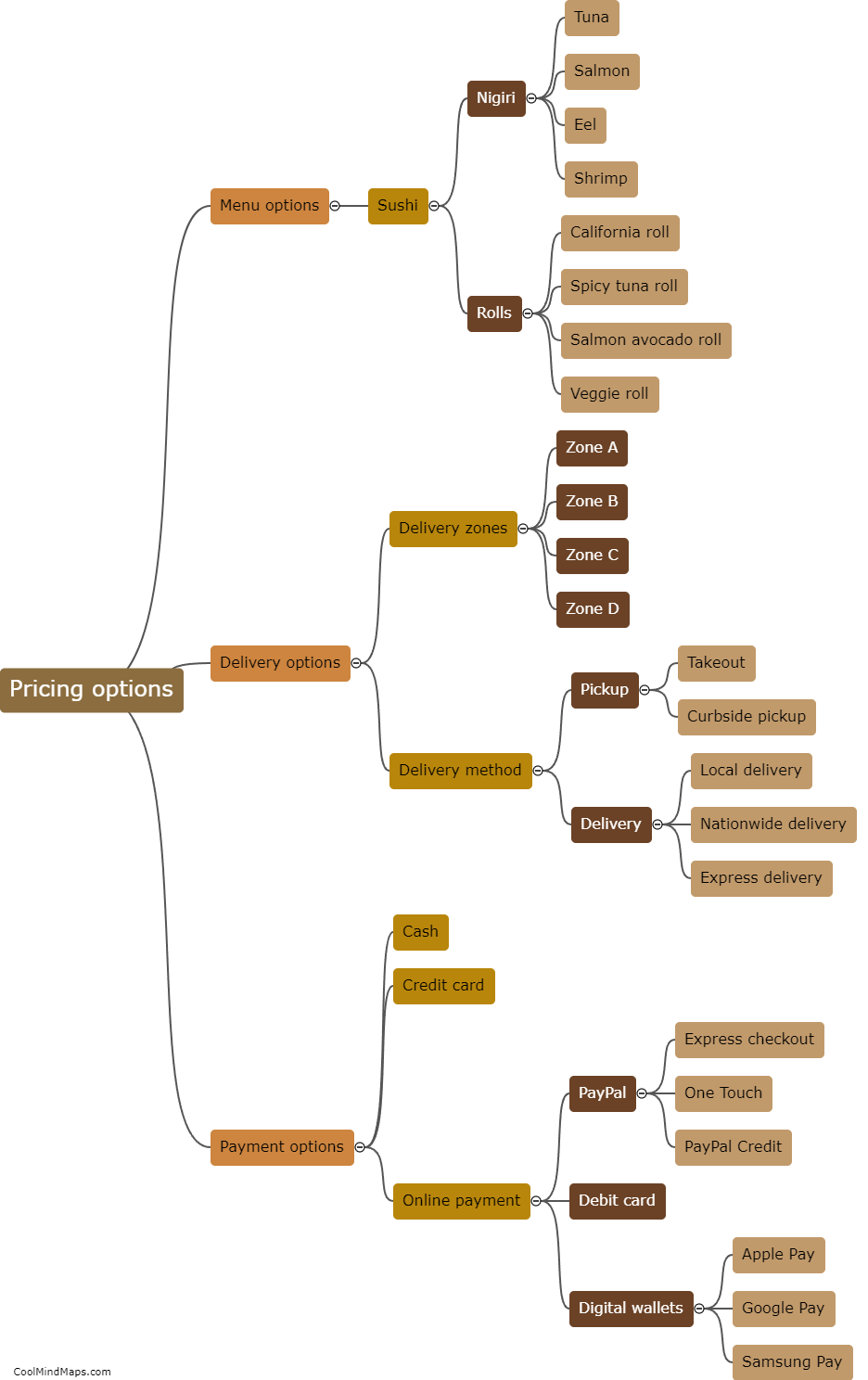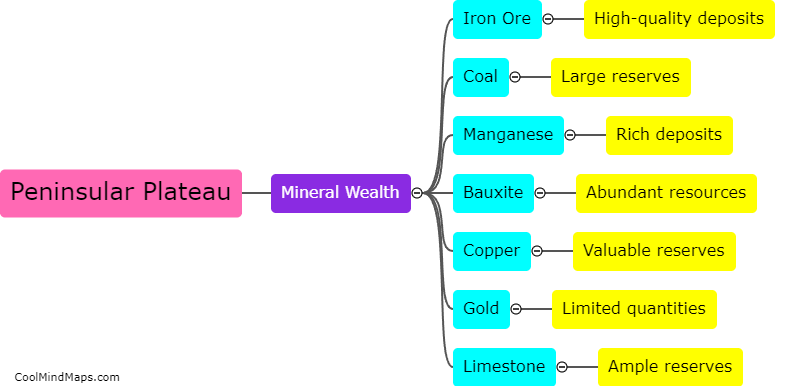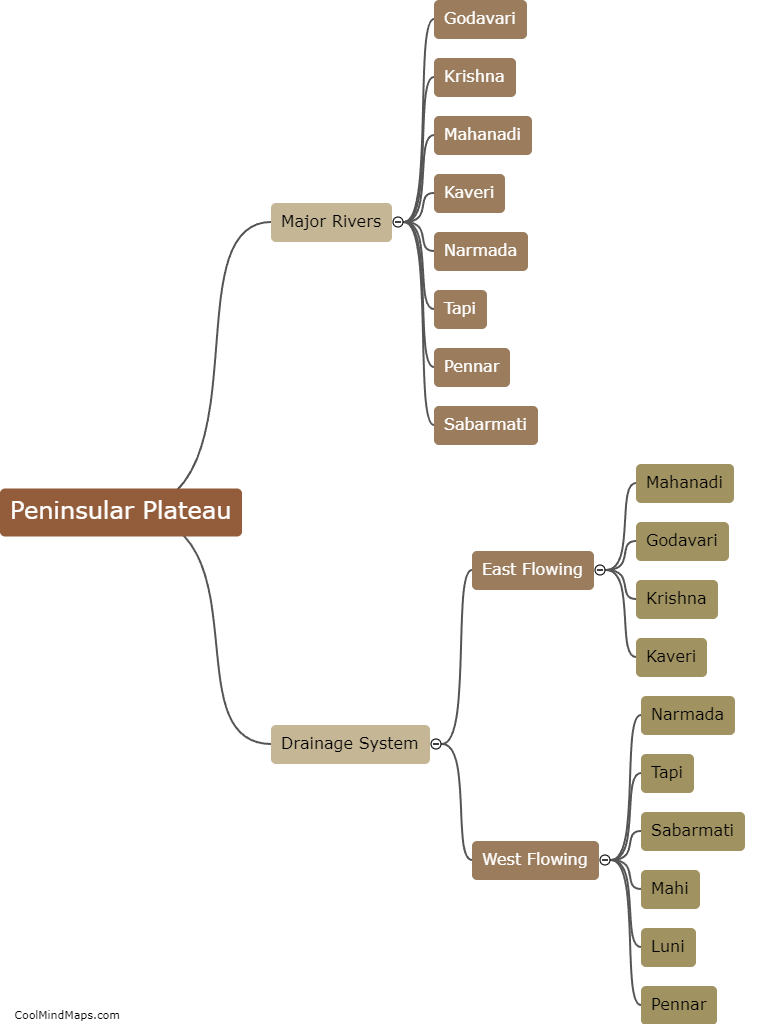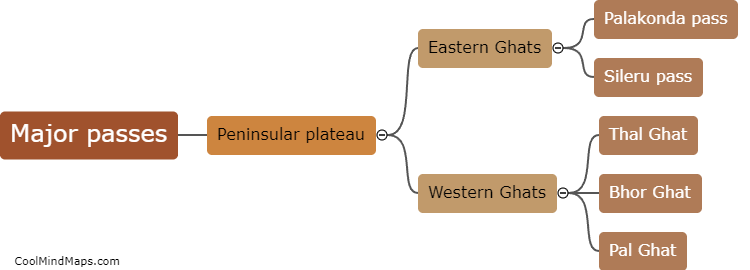What is the significance of the peninsular plateau in terms of agriculture?
The peninsular plateau holds great significance in terms of agriculture due to its unique geographical features and climatic conditions. The plateau is characterized by a diverse topography, ranging from the rugged Eastern Ghats and the Western Ghats to the fertile river valleys and plains. The presence of numerous rivers, including the Godavari, Krishna, and Cauvery, provides ample irrigation facilities for agriculture. The black soil found in regions like Deccan Plateau and Malwa Plateau is highly fertile and suitable for the cultivation of crops like cotton, soybeans, and pulses. The plateau's moderate climate, with distinct monsoon seasons, supports the production of a wide range of crops throughout the year. Additionally, the presence of flatlands in some areas facilitates mechanized farming, improving agricultural productivity. Overall, the peninsular plateau's unique geographical features, fertile soil, abundant water resources, and favorable climate all contribute to its significant role in agriculture.
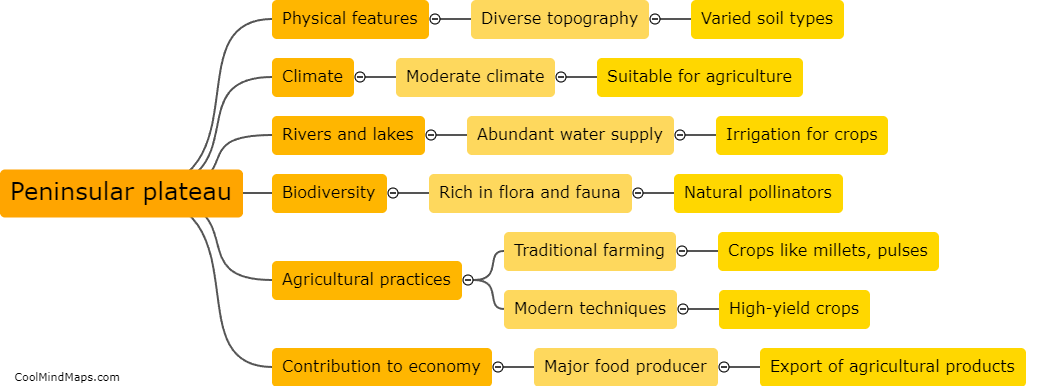
This mind map was published on 1 February 2024 and has been viewed 121 times.

